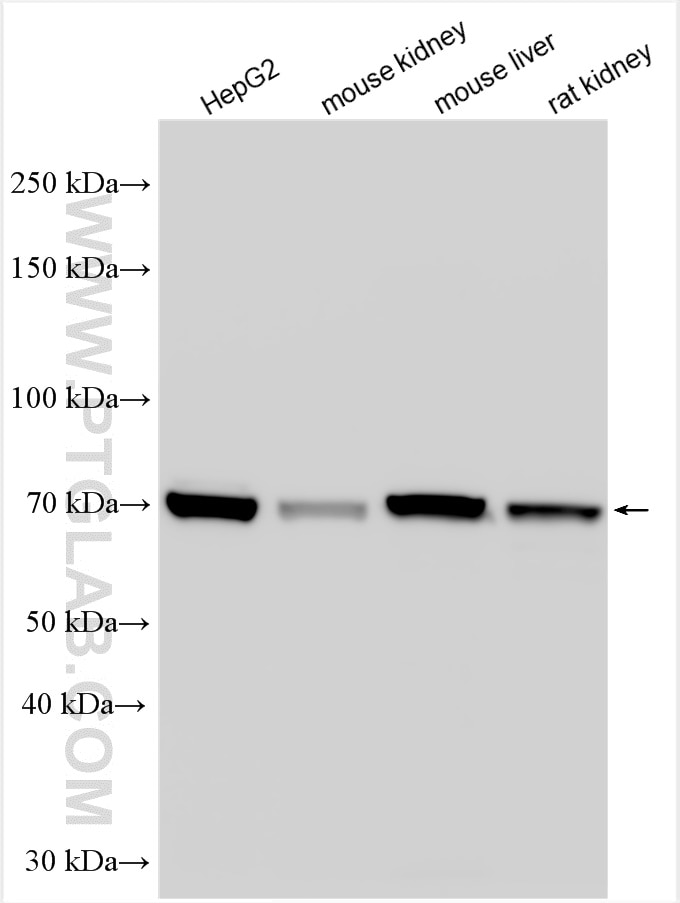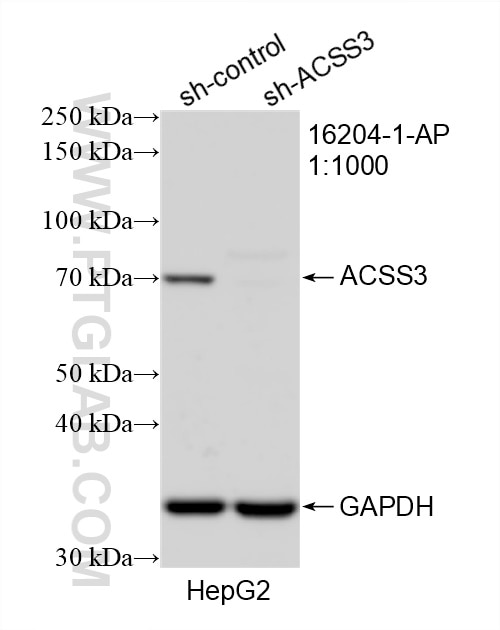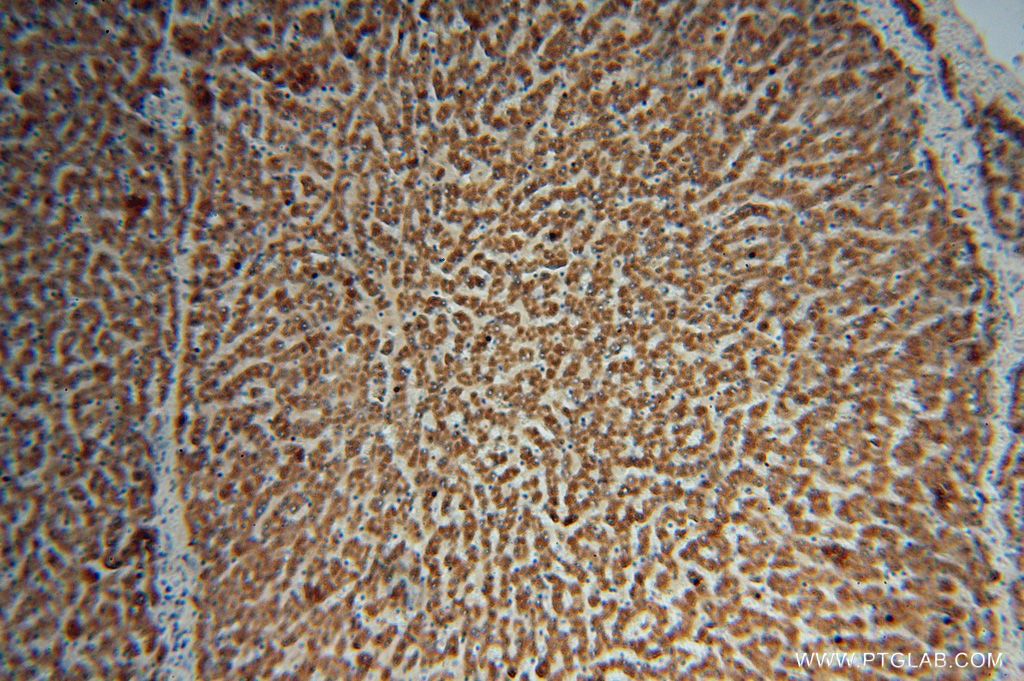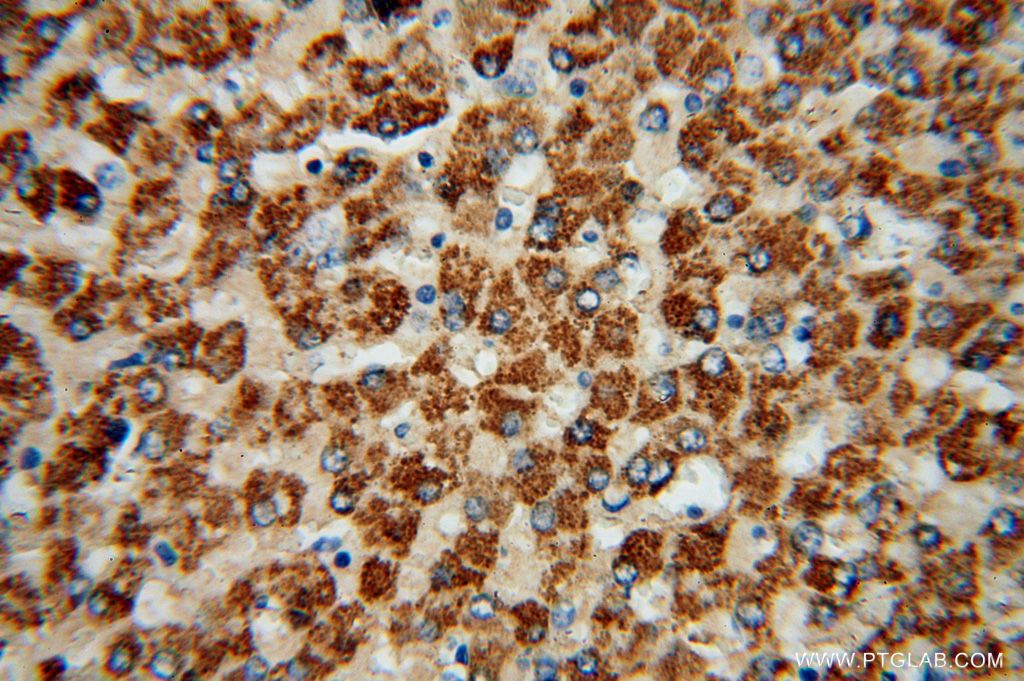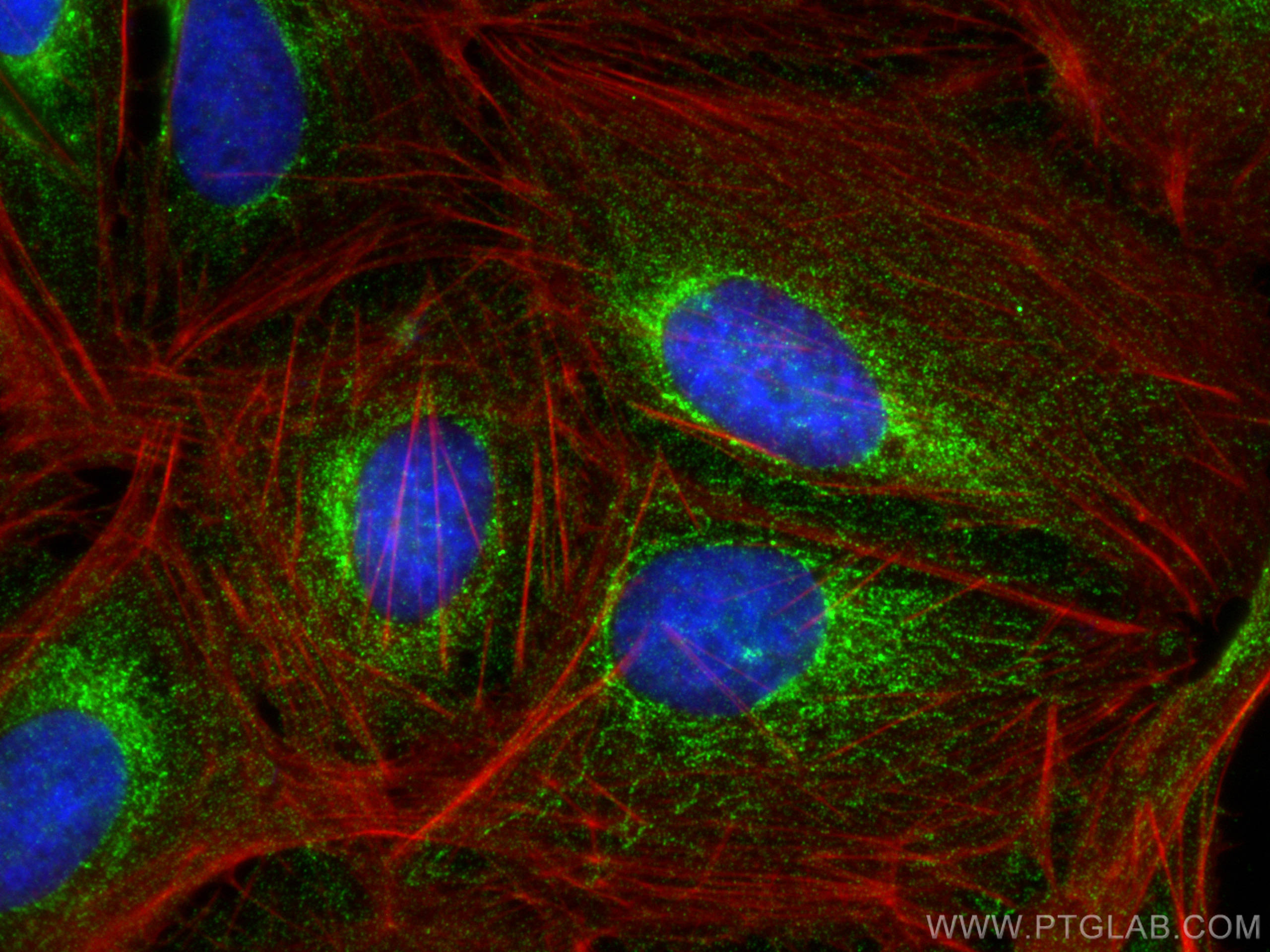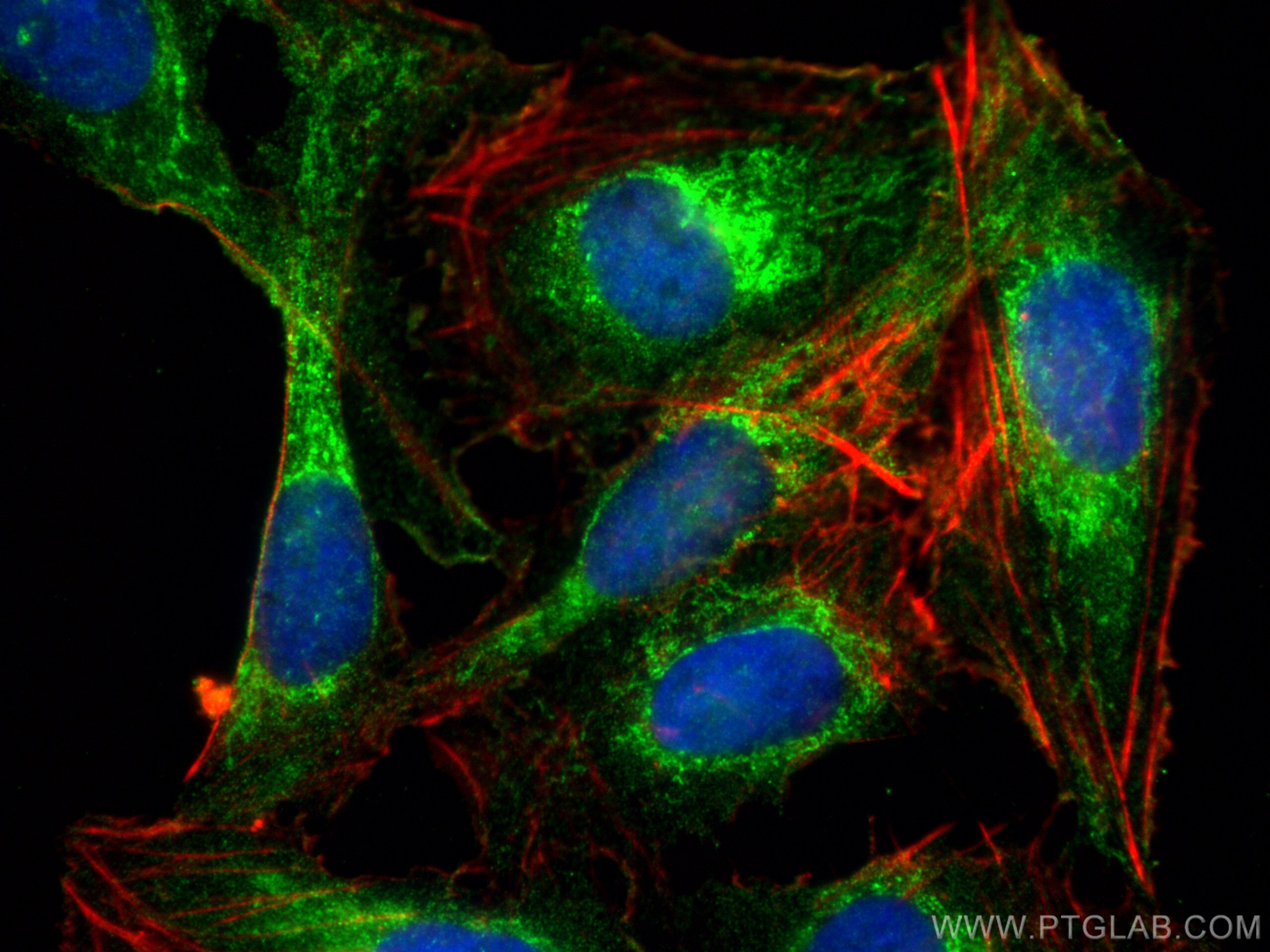Tested Applications
| Positive WB detected in | HepG2 cells, mouse kidney tissue, rat kidney tissue |
| Positive IHC detected in | human liver tissue Note: suggested antigen retrieval with TE buffer pH 9.0; (*) Alternatively, antigen retrieval may be performed with citrate buffer pH 6.0 |
| Positive IF/ICC detected in | U2OS cells |
Recommended dilution
| Application | Dilution |
|---|---|
| Western Blot (WB) | WB : 1:1000-1:5000 |
| Immunohistochemistry (IHC) | IHC : 1:20-1:200 |
| Immunofluorescence (IF)/ICC | IF/ICC : 1:200-1:800 |
| It is recommended that this reagent should be titrated in each testing system to obtain optimal results. | |
| Sample-dependent, Check data in validation data gallery. | |
Published Applications
| WB | See 6 publications below |
| IHC | See 2 publications below |
Product Information
16204-1-AP targets ACSS3 in WB, IHC, IF/ICC, ELISA applications and shows reactivity with human, mouse, rat samples.
| Tested Reactivity | human, mouse, rat |
| Cited Reactivity | human, mouse |
| Host / Isotype | Rabbit / IgG |
| Class | Polyclonal |
| Type | Antibody |
| Immunogen | ACSS3 fusion protein Ag9173 Predict reactive species |
| Full Name | acyl-CoA synthetase short-chain family member 3 |
| Calculated Molecular Weight | 686 aa, 75 kDa |
| Observed Molecular Weight | 70-75 kDa |
| GenBank Accession Number | BC009317 |
| Gene Symbol | ACSS3 |
| Gene ID (NCBI) | 79611 |
| RRID | AB_2257893 |
| Conjugate | Unconjugated |
| Form | Liquid |
| Purification Method | Antigen affinity purification |
| UNIPROT ID | Q9H6R3 |
| Storage Buffer | PBS with 0.02% sodium azide and 50% glycerol pH 7.3. |
| Storage Conditions | Store at -20°C. Stable for one year after shipment. Aliquoting is unnecessary for -20oC storage. 20ul sizes contain 0.1% BSA. |
Background Information
ACSS3(acyl-CoA synthetase short-chain family member 3, mitochondrial) belongs to the ATP-dependent AMP-binding enzyme family. It activates acetate so that it can be used for lipid synthesis or for energy generation. The deduced 686-amino acid protein contains 4 of 5 motifs characteristic of acyl-CoA synthetases. This protein has 2 isoforms produced by alternative splicing. The full length protein has a transit peptide with 29 amino acids.
Protocols
| Product Specific Protocols | |
|---|---|
| WB protocol for ACSS3 antibody 16204-1-AP | Download protocol |
| IHC protocol for ACSS3 antibody 16204-1-AP | Download protocol |
| IF protocol for ACSS3 antibody 16204-1-AP | Download protocol |
| Standard Protocols | |
|---|---|
| Click here to view our Standard Protocols |
Publications
| Species | Application | Title |
|---|---|---|
Cell Metab Amelioration of nonalcoholic fatty liver disease by inhibiting the deubiquitylating enzyme RPN11 | ||
Cancer Commun (Lond) Blockage of EGFR/AKT and mevalonate pathways synergize the antitumor effect of temozolomide by reprogramming energy metabolism in glioblastoma | ||
Biochem J NRF2/ACSS2 axis mediates the metabolic effect of alcohol drinking on esophageal squamous cell carcinoma. | ||
Food Chem Toxicol Integration of proteomics and network toxicology reveals the mechanism of mercury chloride induced hepatotoxicity, in mice and HepG2 cells | ||
Biochim Biophys Acta Mol Basis Dis ACSS3 regulates the metabolic homeostasis of epithelial cells and alleviates pulmonary fibrosis |
